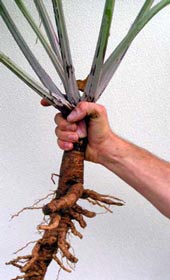What’s Burdock
Burdock, a root native to Europe and Asia, is the main source for a variety of herbal preparations. Burdock root tastes sweet and its texture is sticky. Burdock has been used as remedy for both fevers and colds, urinary tract infections, and rheumatism, although clinical evidence of its effectiveness for treating these conditions is lacking. Burdock has also been employed as a diuretic and more recently has been used as a tea in the treatment of cancer and a number of other maladies.
Historical Uses of Burdock Root

Burdock root has been described as alternative and a blood purifier. The burdock root was believed to clear toxins from the bloodstream. It may be applied externally as well as internally to relieve eczema and psoriasis. Additionally, it may ease painful joints or act as a diuretic. Ancient Chinese medicine combined burdock root with other herbs to treat colds, measles, sore throats, and tonsillitis. And the Japanese consume burdock root as a vegetable.
The primary active constituents in burdock include arctigen, calcium, chlorogenic acid, essential oil, flavonoids, iron, inulin, lactone, mucilage, polyacetylenes, potassium, resin, tannin, and taraxosterol. Fatty acids are contained in the seeds. Burdock seed oil may work as a diaphoretic, creating sweat, neutralizing and eliminating the body’s toxins. The high amounts of inulin and mucilage in this herb likely explain why burdock exhibits soothing effects on the gastrointestinal tract.
Burdock may provide a good source for minerals such as iron, the carbohydrate inulin, and essential oils. Additionally, burdock may serve as a mild laxative and assist in the elimination of uric acid. The herb contains polyacetylenes that have antibacterial and antifungal properties. By improving the function of many organs of elimination (i.e. liver, kidneys, bowels), many health conditions may be moderately corrected.
Burdock is usually available in combination with other herbs as a tea, in tinctures, and in capsule form. Burdock is an effective diuretic, and is considered a very safe herb and food product as long as the root is pure. Reported cases involving toxic effects were first thought to be caused by the consumption of burdock tea, but were later determined to be caused by contamination of the burdock root with belladonna root, which contains atropine. Therefore, consider the source and quality prior to purchasing burdock root.
Credit: Vicony Tea Directory (http://www.viconyteas.com/directory/tea-encyclopedia/burdock-tea.html)
